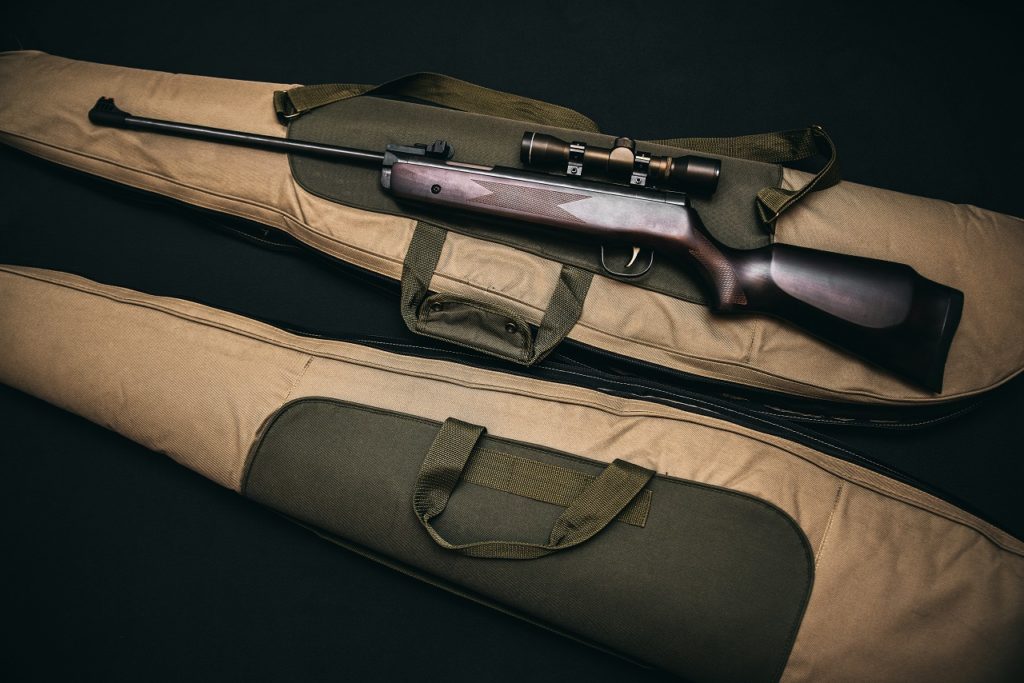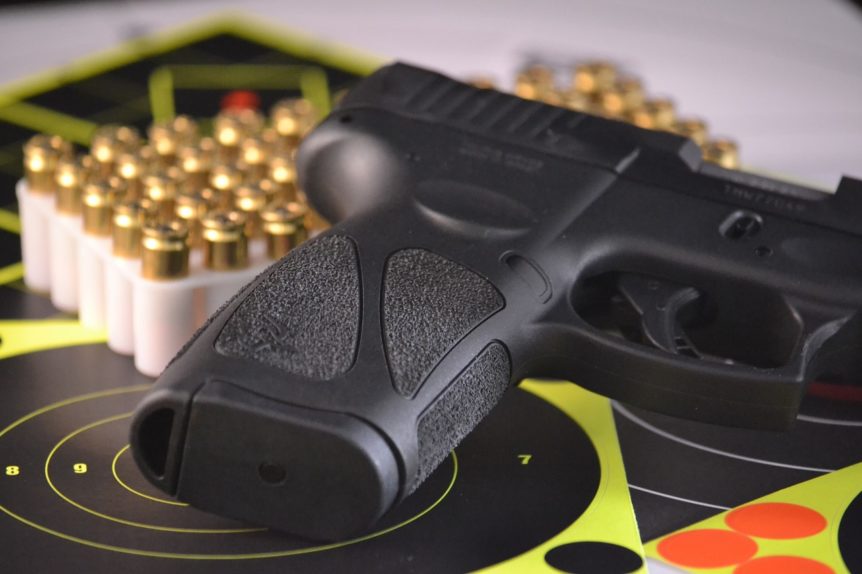Made a mistake when inheriting an Individual Retirement Account (IRA)? Then this could mean facing the music by dealing with tax consequences. Likewise, if you make a mistake when inheriting gun collection, then you could be slapped with the grim reality of felony charges. And, that’s the last thing you need. So, to avoid resigning yourself to this fate, an NFA gun trust comes into play.
If you’re not a gun collector, then chances are you’re not familiar with this term. But, even if you are, you may not fully grasp what it is, how it works, and its importance. This article thereby explores the ins and outs of a gun trust. Read on!
What Is A Gun Trust?
Do you own a gun? Then you may need a gun trust. It’s the generic term for an irrevocable or revocable management trust that’s enforced to take title to weapons/ firearms. Revocable trusts are more popular, given that they pave the way for amendments to be made during the lifetime of the settlor.
Any legally owned firearm can be placed under a gun trust. But, these trusts are particularly applicable to weapons that are classified under the NFA (National Firearms Act) Title II of the Gun Control Act of 1968.
Some examples of Title II weapons are:
- Fully automatic machine guns
- Short-barreled shotguns (suppressors), also known as silencers. These are the most common NFA weapons that are purchased and owned by a gun trust.
Types of Gun Trusts
Gun trusts fall into two categories.
Revocable Gun Trusts: They’re just like any revocable trust, with the only difference being that they contain language that’s related and specific to the NFA. Revocable Gun Trusts are the most popular because they allow modifications at any time. If you’re having a change of heart and would like to exclude or include co-trustees, for instance, the necessary amendments can be made.
Irrevocable Gun Trusts: Just like the revocable gun trusts, their irrevocable counterparts contain related and specific language to the National Firearms Act (NFA). But, they’re not as common because they don’t facilitate any later changes after the signing or execution of the trust.
After the settlor or granter kicks the bucket, and a given timeframe elapses, revocable gun trusts may automatically become irrevocable.
What Is the Importance of a Gun Trust?
Having a gun trust packs an array of perks, some of which are outlined below.
Easier Use and Management: If you have a class 3 firearm license (Federal Firearms License), then you know it’s illegal to hand over your weapons to anyone to use or store them for you. This means that taking your friends, colleagues, or family members shooting with your weapons is a felony.

However, this law goes out the window when you’re armed with a gun trust. It allows any of your trustees and beneficiaries to legally operate and possess any of your weapons.
The trust also facilitates the easy removal and addition of trustees and beneficiaries. So, taking your loved ones for a shooting adventure is just one signature away. Moreover, they can store your class 3 weapons for you.
No CLEO Signature Required: Upon requesting for the acquisition of a firearm, you’re typically required to visit your local Chief Law Enforcement Officer (CLEO) for fingerprinting and approval. However, a gun trust eliminates this process.
Easier Job for Executors: An executor that’s not well-versed in the rules encompassing the NFA may unknowingly break the law by transferring a firearm to a prohibited jurisdiction. Alternatively, they may hand over the firearm to someone that doesn’t legally own it or transfer ownership without following the necessary protocol.
A gun trust puts all this to bed because a trustee and not the executor is in charge of the trust assets that includes the said weapon. Therefore, it’s in your best interest to appoint a trustee that understands the ins and outs of federal and state weapon laws and knows when to seek the services of a qualified lawyer.
Easier Inheritance: In an unfortunate turn of events, the registered owner of class 3 firearms passes away or is incapacitated. So now what? Thanks to a gun trust, their legal beneficiaries will need to submit an ATF Form 5 (NFA gun trust form) for the inheritance of the weapons. The form also states that for registered weapons, the settlor should take action as soon as possible. This facilitates the ideal registration of weapons.
Having an NFA firearm that you don’t legally own goes against federal law. So, this bears the repercussions of the said firearm being seized. But, NFA wait times grant the executor (trustee) a grace period to transfer the registered weapons to a beneficiary’s estate. And, it’s the executor’s responsibility to maintain custody and control of the firearms registered in the beneficiary’s name.
However, complications can crop up if the intended beneficiary is below the legal age of 18 or cannot have or own a weapon for other reasons. For instance, they have a criminal record.
Setting up a gun trust can be Dynasty (multi-generational), which means they’re designed to be functional after the settlor/ grantor dies or becomes incapacitated. This permits successors to take over the trust and resume its operation without needing to transfer ownership of the weapons. Gun trusts also aid in avoiding probate which can be a pain.
What a Gun Trust Cannot Do
Gun trusts come with a barrage of advantages. But, it’s not all rainbows and butterflies. So, before you rush to get one, it’s vital to keep in mind that there are some limitations, as discussed below.
- Bypass Firearm Limitations: A gun trust doesn’t permit you to own any weapons that can be otherwise obtained illegally. For instance, silencers are prohibited in the state of California with or without a gun trust.
- Permit Illegal Users: A gun trust prohibits users that cannot otherwise legally use or possess a firearm. For instance, a 16-year-old is forbidden from owning or using a weapon like a Model 16 riffle.
- Registration Removal: A $200 NFA tax stamp is needed whether or not you have a gun trust in place. So, you’re still required to pay this fee and register the firearm with the ATF.
Ways to Set Up a Gun Trust
Here are some of the ways to create a gun trust.

- Online: In today’s digital era, the internet has become the go-to for almost anything, and gun trusts are no exception. There are plethoras of sites that sell NFA trusts. But, like everything else, there are also counterfeit gun trusts that are automatically denied by the ATF. So, keep this in mind to avoid frittering away your hard-earned money.
- Gun Trust Lawyer: To avoid the risk of getting scammed by buying an NFA trust online, you can reach out to a reputable lawyer that will craft one from scratch, suited to your preferences.
- DIY Templates: In a bid to save money, there are countless Do It Yourself templates that have flooded the internet. But, like buying a ready-made gun trust online, we don’t recommend investing in these templates. They may not be fully protected and compliant with the ATF. Instead, visit your nearest ATF NFA branch.
Why You Should Use a Lawyer Instead of Online Services
While online services offer convenience, using a lawyer comes with unbeatable perks.
Added Value: Using a qualified lawyer sprinkles value in the crafting and implementation process of a gun trust. Sure, some aspects of it mimic form letters. But some sections are customized to suit your particular situation.
It’s best to consult an attorney that’s an expert in adding this personal touch to your gun trust. This includes relevant documentation.
Much-needed Support and Backup: It’s no secret that gun trusts are tied to additional requirements and intricacies that go above and beyond typical estate planning. So, a reputable lawyer will offer you much-needed backup and help you get out of sticky situations.
When it comes to BATFE (Bureau of Alcohol, Tobacco, Firearms, and Explosives) an attorney can offer extensive support coupled with ongoing legal counsel. If an issue with the BATFE crops up, those who downloaded and filled out forms from the internet will be left high and dry.
But those who hired qualified lawyers can call upon them to swoop in and save the day. A lawyer also carries malpractice coverage, which comes in handy if there was an error by the drafter which led to litigation.
The Parties Involved In a Gun Trust
Coming up with a gun trust entails grasping the parties involved, along with the different roles they play, as explained below.
The Settlor: Also known as the grantor, these are the individuals that create gun trusts and are responsible for them.
Co-trustees: These are the parties responsible for the gun trust. So, they’ll need to submit their passport size photographs and fingerprints along with the AFT Form 5. They also have the power to possess and use the weapons listed in a gun trust without the owner (the settlor) being present. Co-trustees have to be the minimum legal age of 18.
Successor Trustee: It refers to the person that takes over the gun trust after the passing on of the co-trustees and settlor. Just like the co-trustees, a successor trustee has to be at least 18 years in age and play the role of the beneficiary or co-trustee in a gun trust. Nonetheless, it’s essential to keep in mind that successor trustees are not responsible for the NFA trust. But, this changes if they become the co-trustees. And, they can only use the said firearms under the owner’s supervision.
Beneficiaries: They’re the people that will take ownership of the weapons listed in a given NFA gun trust when the settlor kicks the bucket. Beneficiaries have to meet all the requirements to own an NFA firearm. For instance, they must be at least the legal age of 18 and have no criminal record.
The beneficiaries are passive members of the gun trust and are therefore not responsible for it. They’d only become responsible parties if they’re named as the co-trustees of the gun trust, which would then allow them to use the NFA firearms without the owner’s supervision.
Responsible Persons: In a gun trust, these refer to the settlor coupled with the listed co-trustees. The listed successor trustees also fall in this bracket if they’re named as co-trustees.
Common Mistakes to Avoid When Setting Up a Gun Trust
As they say, man is to error! The same applies to the creation of a gun trust. So, here are some common mistakes that you’ll want to avoid to ensure you’re fully protected and have the much-needed peace of mind.
The legal transfer of all the assets to the trust: It’s essential to ensure that all the given firearms are legally transferred to the gun trust. The trustees can only legally use these weapons listed in the trust to avoid problems with the law.
All trustees must be present for the notarization: It’s no secret that the notarization is what breathes life into a gun trust while the law varies from one state to another regarding whether or not all trustees must be present for the notarization. So, it’s important to consider this when including a trustee that may be unable to attend.
NFA weapons are not legal in all states: Taking the time to understand your state laws coupled with a lawyer consultation can aid in ironing out any issues. Only some states permit the legal ownership of NFA weapons. So, it’s crucial to ensure that all the firearms in your trust can be legally owned in your given state.
Closing Remarks
Gun trusts are the perfect risk management solutions for these scenarios. Those named in your trust can legally handle your NFA weapons and evade lawful issues that may later crop up where the weapons are used in emergencies, for instance.
Are you ready to get started on your gun trust? Then get in touch with our legal experts today!
